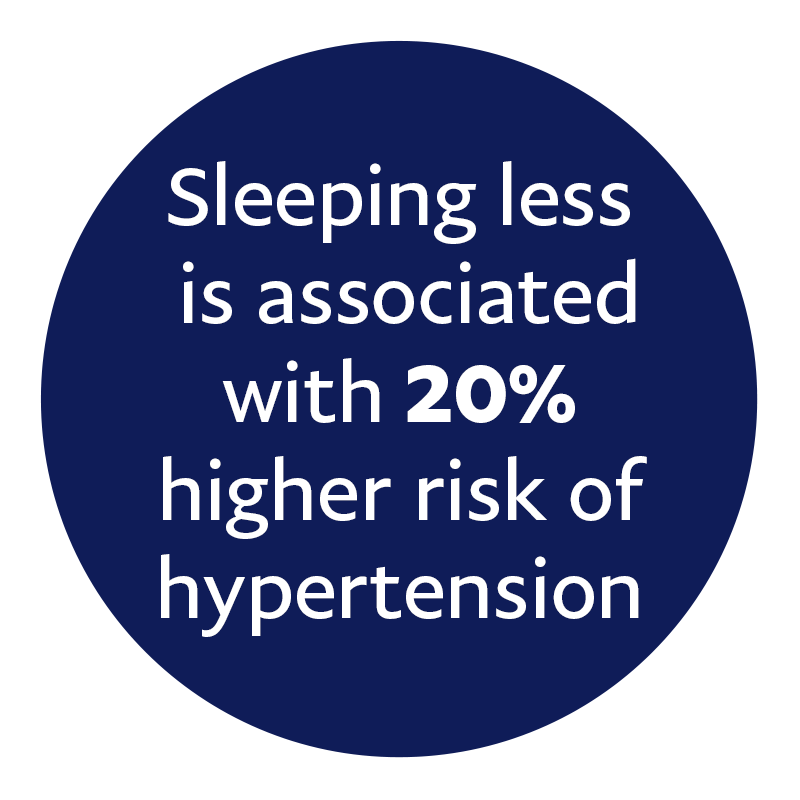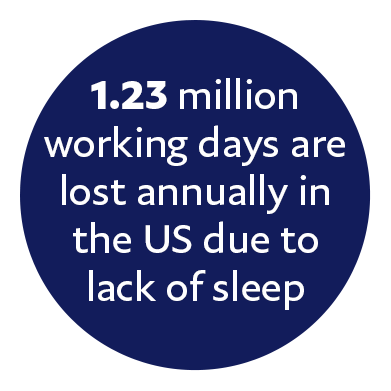PeopleCulture
Thanks to a pervasive “rise-and-grind” culture, the stress of navigating everything from parenthood to a pandemic, and the strain of running their own operations, business owners across the globe are losing out on sleep.
The good news: entrepreneurs in the sleep and wellness industries are making slumber easier to get. And while building and running a company from scratch doesn’t sound conducive to relaxation, these well rested—and successful—business owners are prioritizing wellness and sleep health, using their personal quests for better rest to help not just themselves but the rest of us, too.

PayPal tapped into our global community of merchants to help, speaking to sleep-oriented business owners and wellness experts to understand the importance of sleep and get advice for entrepreneurs and others dreaming of better rest.
A Sleep-Deprived Society
In the age we live in, sleep is too often deprioritized—to the detriment of the health and wellbeing of many. The pandemic has exacerbated the issue, resulting in a chronic lack of sleep that knows no geographical boundaries. About 36% of the global population had experienced sleep problems during the COVID-19 pandemic as of mid-2021, according to one study.

Yet the roots of today’s sleep-deprived society were firmly planted well before the pandemic, as the hustle and grind and “always-on” work and social cultures became the norm. More than 40% of business owners say they don’t get enough sleep at least four nights a week, according to a survey.
“When you’re a business owner, clients, staff, colleagues, family, or some combination of these are relying on you,” said Adair Finucane, an Ayurvedic wellness coach and burnout recovery consultant based in Rochester, New York. “This can create a lot of pressure, from without and within. Who doesn’t want to be seen as hardworking or dedicated?”
Changing Sleep Culture
Reversing the sleep deprivation trend will require changing sleep culture. Part of this includes avoiding the pitfall of an excessive focus on the perfect sleep, said Ann Crady Weiss, CEO and co-founder of Hatch, a sleep product company in Redwood City, California. With so many sleep trackers on the market, Weiss said people have become obsessed with getting “perfect sleep,” which perpetuates anxiety and guilt when perfect proves elusive. Hatch instead shifts the focus to realistically evolving a person’s sleep habits, not perfecting them.
Changing “sleep when you’re dead” culture is also imperative. “In America in particular, we shifted straight from hustle culture into a pandemic that wreaked havoc on our collective ability to sleep,” said Julie Westervelt of Sleep Crown, an over-the-head pillow company based in Austin, Texas.

Mark Zhang, founder of sleep-mask maker Manta Sleep, admits that when he was younger he, too, thought a key to success was to sleep just five hours a night and work all day.
“It is absolutely idiotic,” he said. “It is so destructive to be pushing this narrative. It is misleading to trick people into thinking success is created by hustling, doing lots of work, and not resting.”
Increasing self-care is important to shifting the culture, too. “In this fast-paced world there are so many things that we need to do, that we don’t tend to nurture the things we want to do,” said Kitty Shum, who founded Loti Wellness, which sells a self-care kit subscription box shipped out of Toronto, Ontario. “Personal wellness can take a back seat when external demands on your time and energy cause you to lose focus on what’s important physically, mentally and emotionally,” she said.
And for small business owners who are also juggling parenthood, the demands can quickly pile on. “There were definitely times when we were stretched at work while dealing with babies not sleeping,” shared Cassandra Cannon, co-founder of sleepwear retailer Lake Pajamas. “I remember feeling like I was in a fog and couldn’t think clearly at work because I was so tired.”
Balancing Business and Wellness
For business owners, finding time for wellness—including adequate sleep—can be particularly challenging when on the hook for the fate of an operation that can feel like a 24/7 job.
Anne Lattimore, who also co-founded Lake Pajamas, recommended changing tasks when stress sets in, if possible. “I get re-energized when I accomplish even small tasks and mark something off the to-do list, and it often helps when I re-tackle more difficult things with fresh eyes.”

Mark from Manta Sleep suggests looking for opportunities to simplify, automate, delegate, and hire – leaving more room for personal wellness. He also encourages companies to adopt a “pro-nap” culture.
Hatch’s Ann advised other business owners to “put on your own mask first before helping others. You can’t fill from an empty cup.” She believes demonstrating self-care is key to showing up as a leader for teams and customers. “I want my employees to feel like they have the space to rest in their lives, as I know the impact that sleep has on overall health and day-to-day life. To do that, I must lead by example.”
Learning to Value the Health of Our Minds and Bodies

Researchers have estimated the economic impacts of lost sleep, and the numbers are staggering. According to one study, in the U.S., lack of sleep leads to around 1.23 million lost working days annually, due to workers falling ill and having to taking time off, or attempting to work even while sick. This is untenable; a clear sign that we must take better care of ourselves and value our wellbeing, and that “working” at all moments does not equal productivity.
“Owning a business takes creativity, and creativity does not spout indefinitely on command,” said Adair, the wellness consultant. “It needs to be stoked through downtime, recreation, enjoyment, and pleasure.” And yes, that includes getting a healthy amount of sleep.
For more resources for small business owners, including tips and advice drawn from the global network of small business owners that PayPal works with, visit our Business Resource Center.
Statistic sources: “More than 40% of business owners…” source; “Sleeping less is associated with 20%…” source; “Small business owners spend 17…” source; “1.23 million workings days…” source.